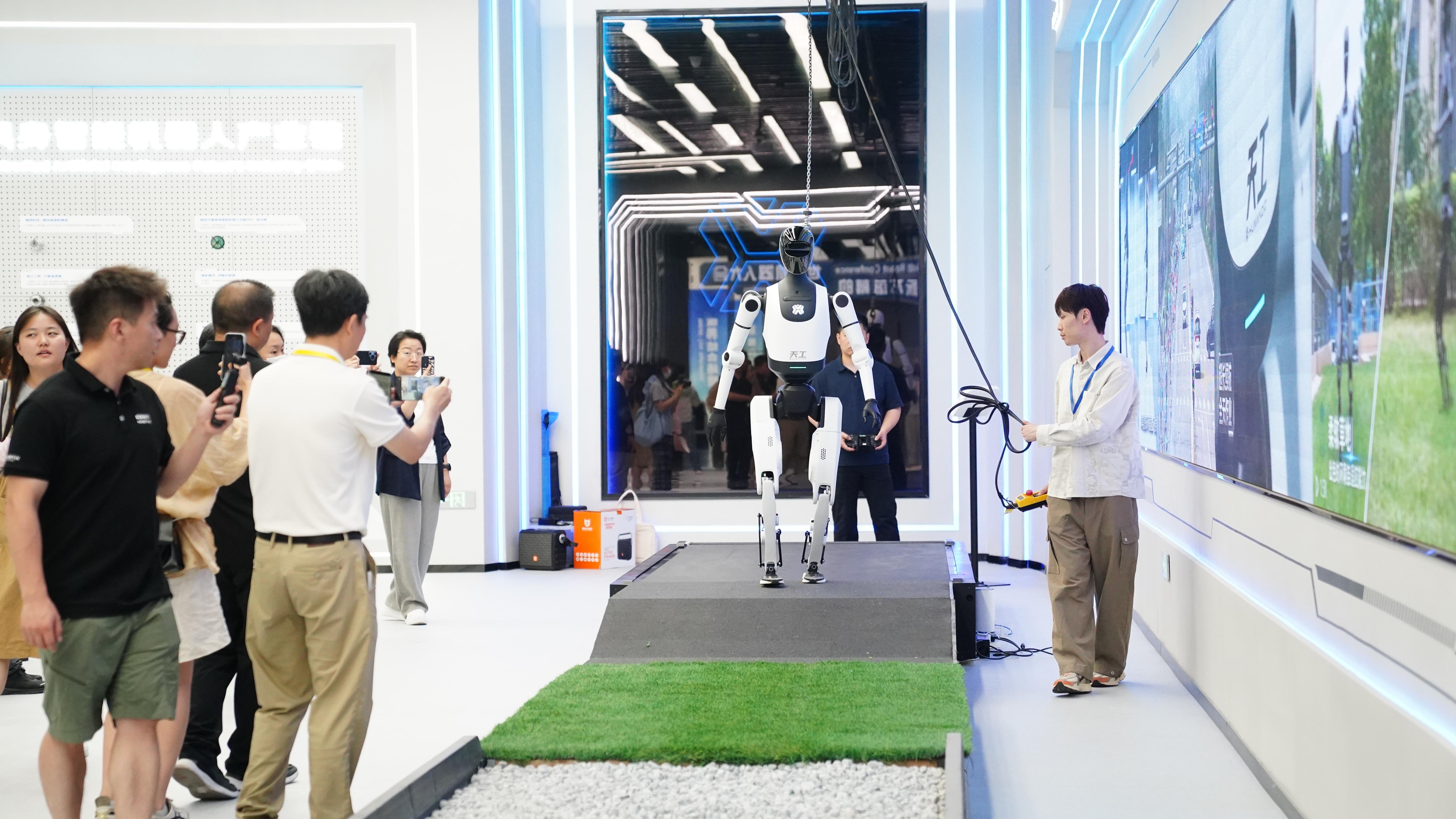Robots Score Big in Beijing
In Beijing's E-Town district, a bustling innovation hub, a remarkable scene unfolds on a soccer field. As the referee blows the whistle, starting the game, a player confidently makes a free-kick, sending the ball soaring inside the far post in a perfect curve. What makes the feat even more thrilling is that it is achieved by a robot player and the match is between two robot teams, developed by Chinese techies right here in Beijing.
"Just last year, robots could kick a ball only about 15 centimeters high. Now, they can execute a complete, graceful freekick," said Cheng Hao, founder and CEO of Beijing Booster Robotics, highlighting the rapid advances in robotics technology over the past few years.
In the E-Town Robot Industry Park, the "Robot World" exhibition center showcases a full spectrum of robotics innovations. Visitors witness a decade of breakthroughs with leading humanoid robots, such as the nation's first general-purpose humanoid mother platform "Tiangong," Unitree's G1, Ti5Robot's T170A and UBTECH's Walker S — all emblematic of Beijing's thriving robotics sector.

With enhanced capabilities and versatility, these robots are now operating across factories, pharmacies, warehouses and sports, steadily integrating into everyday life and industrial production.
"Robots completing a half marathon helped us gain wider recognition," said Jiang Zheyuan, founder and chairman of Noetix Robotics, whose robot N2 came second. "By June this year, the orders for our N2 robot exceeded 1,000 units."
Jiang credits this partly to strong support by the authorities of Beijing's Changping district, where the company established a production base earlier this year. Backed by the district's comprehensive industrial policies and incubation systems, the company scaled to mass production in just three months.
To fuel this innovation momentum, Beijing has launched a series of targeted support measures for robotics enterprises. Liang Hongjun, deputy director of the Intelligent Manufacturing and Equipment Industry Division at the Beijing Municipal Bureau of Economy and Information Technology, said the city has set up a 10-billion-RMB robotics industry development fund. Collaborating with major domestic investors, Beijing has formed an integrated investment ecosystem spanning early-stage research, pilot manufacturing, and applied scenarios.
Liang said since 2023, the city has promoted 199 innovative products in 134 usage scenarios. They cover 11 sectors including industrial manufacturing, commercial services, education, healthcare, agriculture and landscaping.
Notably, humanoid robots in Beijing are already deployed in bulk for special hazardous tasks, logistics sorting and unmanned retail. The expanding global stage is opening wider doors for robots, and Beijing stands at the forefront of this exciting revolution.







